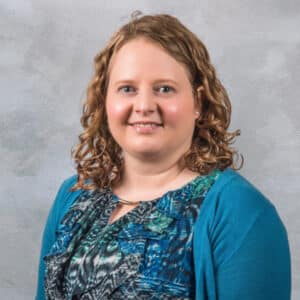Center For Professional Development
Nazarene Course of Study
COURSE OF STUDY
Since 2001, NNU has offered the Online Course of Study program in close cooperation and consultation with the Clergy Development Office at the Nazarene Global Ministry Center. Through this process we have gained significant insight into the most effective, pedagogically sound manner of presenting the course modules through an online platform. We have adapted the program to meet the needs of students while maintaining the integrity of the course modules and the vision of Clergy Development for their implementation.

About the Program
Our experienced and effective teachers give you a full 12 weeks of instruction in an enriched format as you prepare yourself for effective ministry. All of our course modules have been adapted for the most modern online software available today, Canvas. Every course module has been adapted for online instruction by our full-time University staff of professionals and is facilitated by a pastor/teacher who holds at least a master’s degree. We continually review and upgrade the program as necessary to improve our presentation and reflect the best practices of online education. We look forward to helping you reach your ministry goals with the best possible online Course of Study instructional program.
The program is divided into 23 modules provided by the Church of the Nazarene Clergy Development Office and produced by a recognized, experienced educator in the Church of the Nazarene. Each completed course module earns one NNU college elective credit. Course module facilitators are ordained Nazarene elders currently serving in local congregations of the Church of the Nazarene through North America. Each hold a minimum of a master’s degree; several have doctorate degrees.
The Online COS program is open to anyone seeking education in Christian studies. These course modules are designed for those pursuing ordination in the Church of the Nazarene through the modular course of study program. For more information, contact the Course of Study Office at 208.467.8538 or cos@nnu.edu.
Module Sequence
Students may take course modules in any order they wish. However, below is a suggested order of completion: complete the course modules in Group 1 first before moving on to Group 2. Then, complete Group 2 before moving on to Group 3. Next, complete Group 3 before taking course modules in Group 4. Once Group 1 is completed, students are free to take modules from the At-Large Group as they work through the course modules in Groups 2, 3, and 4.
All modules are 12 weeks in length except for 1 module which is 6 weeks (CSPT1054 Exploring Christian Ministry).
Group 1
- Exploring Christian Ministry (6 weeks)
- Telling the New Testament Story of God (prereq)
- Telling the Old Testament Story of God (prereq)
Group 2
- Examining Our Christian Heritage I
- Exploring John Wesley’s Theology
- Interpreting Scripture (prereq)
- Tracing the Story of God in the Bible (prereqs and textbook required (ISBN 978-0830814381)
Group 3
- Becoming a Holy People
- Examining Our Christian Heritage II
- Investigating Christian Theology I
- Investigating Christian Theology II
- Preaching the Story of God
Group 4
- Administering the Local Church
- Communicating Christ Cross-Culturally
- Communicating the Gospel in a Pluralistic World
- Declaring the Gospel of God
- Exploring Nazarene History and Polity
- Foundations of Women’s Ordination
- Leading the People of God
- Living Ethical Lives
- Practicing Wesleyan-Holiness Spiritual Formation
- Providing Christian Education for All Ages
- Shepherding God’s People
Module Schedule
2024 Summer
- Early Registration – Thursday, March 14 – Saturday, March 30
- Regular Registration – Sunday, March 31 – Tuesday, May 7
- Module/Course Schedule – May 13 – August 3
Meet Our Faculty
Module Descriptions
Each semester, we plan to offer all 23 course modules in the program with the exception of low enrollments.
CSPT1011 Administering the Local Church
Here the prospective pastor is introduced to the art/science of Church Administration which is a continual and intentional process that connects and uses gifts of individual believers to enable a particular congregation to win people to Christ and to build a spiritually healthy church. This course module has 20 lessons.
CSTH1033 Becoming a Holy People
Holiness of heart and life is traced as a theological doctrine from early Judeo-Christian literature through the 21st-century expression in the Church of the Nazarene. This course module has 12 lessons.
CSPT1051 Communicating Christ Cross-Culturally
This course module acquaints the student with the fundamentals of Missiology, the theology of missions. Pastors must be knowledgeable of and sensitive to cultures other than their own in this rapidly diversifying world. This course module has 10 lessons.
CSPT1052 Communicating the Gospel in a Pluralistic World
In this course module students confront the ideology of religious pluralism from a Wesleyan-Arminian perspective. Religious pluralism claims that not only are there many religions, the diversity represents the way things ought to be. There exists no single religious perception of reality that is universally applicable and binding. No religion can legitimately claim to proclaim the truth for all persons. This course module has 12 lessons.
CSPT1053 Declaring the Gospel of God
The fundamentals of evangelism are considered in this course module and various approaches to evangelism are presented. This course module has 12 lessons.
CSCH1024 Examining Our Christian Heritage I
The foundation and development of the Christian Church up to the Reformation period (1500 A.D.) is studied in this course module. This course module has 12 lessons.
CSCH1032 Examining Our Christian Heritage II
Developments in the Church since 1500 A.D. is the focus of this course module. This course module has 18 lessons.
CSPT1054 Exploring Christian Ministry
The course module writer views the minister and the ministry from a biblical perspective, presents the ministry as a high calling demanding holy living and hard work, and encourages a hunger for and commitment to a lifetime of arduous study and patient ministry. This course module has 6 lessons and lasts 6 weeks.
CSTH1025 Exploring John Wesley's Theology
The course module will examine the life of Wesley in a historical context, Britain in the 18th century. It will also examine Wesley’s dependence upon and creative appropriation of certain theological traditions. Each aspect of the “Wesleyan Quadrilateral” will be examined. This course module has 15 lessons.
CSCH1055 Exploring Nazarene History & Polity
CSPT1060 Foundations of Women's Ordination
This module is designed to give a multi-disciplinary view of the ordination of women in the Church of the Nazarene. Broader biblical, historical and theological issues will be explored, with specific emphasis given to the Wesleyan-Holiness heritage. Practical issues such as power dynamics, the importance of inclusive language, and modeling gender mutuality, as well as the practical aspects of mixed gender pastoral teams, co-pastoring, and family issues for women clergy, are also discussed. This course has 15 lessons.
CSBL1021 Interpreting Scripture
A set of procedures by which to pursue the meaning of the text for its author and/or original audience and the ability to move from that original meaning to a contemporary application or contemporary significance is what this course module provides the student. Prerequisite to CSBL1020. This course module has 14 lessons.
CSTH1031 Investigating Christian Theology I
This course module introduces the student to Systematic Theology, a thematic approach to understanding Christian Theology. This course has 20 lessons.
CSTH1041 Investigating Christian Theology II
This course module continues the Introduction to Systematic Theology, a thematic approach to understanding Christian Theology. It is advisable that Christian Theology I be taken before Christian Theology II although it is not a requirement. This course module has 17 lessons.
CSPT1061 Leading the People of God
The overarching vision for this course module is for each student to embrace the biblical model of servant as the driving force and organizing principle within the individual as he or she seeks to lead a Christian community of faith. This course module has 16 lessons.
CSPH1062 Living Ethical Lives
The moral implications of the Gospel and Christian character are key themes of this module. Special attention will be given to the unique way in which moral reflection has characterized the Wesleyan-Holiness tradition. This course module has 20 lessons.
CSPT1063 Practicing Wesleyan-Holiness Spiritual Formation
Spiritual formation is the transformational outworking of the grace of God in the hearts and actions of human beings. It includes Christian fellowship, community, and worship (Eph 4:15-16) as well as acts of service (Gal 6:10). This course module focuses primarily on the spiritual disciplines, devotional skills, and practices that open the door to the transforming Spirit. This course module has 20 lessons.
CSPT1042 Preaching the Story of God
The fundamentals of sermon preparation and presentation are addressed in this course module. Students are expected to produce and preach sermons in their local setting. This course module has 14 lessons.
CSCE1064 Providing Christian Education for all Ages
The course module is an introduction to the field of Christian education. This course module has 20 lessons.
CSPT1065 Shepherding God's People
In this course module the student is introduced to the fundamentals of pastoral counseling. This course module has 16 lessons.
CSBL1012 Telling the New Testament Story of God
This course module will introduce the student to the New Testament biblical literature, Bible study methods, and the environment of the Early Church. Special attention will be given to the political, cultural, religious, and geographical setting, the literary genre, and the meaning of the text in its original cultural, historical, and literary context for the purpose of discovering the principles of truth to be applied to our contemporary setting. Prerequisite to CSBL1020. This course module has 20 lessons.
CSBL1011 Telling the Old Testament Story of God
This course module is an introduction to the serious study of the Hebrew Scriptures in their historical, cultural and literary contexts. The course module emphasizes the essential contents, structure and theological message of the books of the Old Testament. Students are introduced to the practice of biblical exegesis and to the geography and archaeology of the lands of the Bible. Prerequisite to CSBL1020. This course module has 13 lessons.
CSBL1020 Tracing the Story of God in the Bible
Through this biblical theology course module, students will learn to sort through the Bible’s witness to God’s involvement in the lives of people long dead to discern the timeless truths that should shape our understanding of God and life as his people. This is the only course module requiring a textbook. New Dictionary of Biblical Theology (NDBT) ISBN: 978-0830814381. Prerequisites: CSBL1011, CSBL1012, and CSBL1021. This module has 12 lessons.
Course of Study
Tuition
Early registration period: $150
Regular registration period: $200
Payment of the balance due on a student’s account must be completed at the time of registration. Course module enrollment occurs when payment is received. Tuition is non-refundable. Neither Financial Aid nor Military Funding is available for the Course of Study program. If you have questions, please contact the Course of Study office by emailing COS@nnu.edu or calling 208.467.8538.
Add/Drop/Withdrawal Policy
NNU has implemented a defined Add/Drop/Withdrawal Policy for our online Course of Study Program. It is as follows:
1. Students can add a course module up until 5:00 pm MST on Tuesday prior to the first day of class.
2. Students can drop (meaning no record of attending the class) up to 7 days/1 week from the beginning date of the class; however, there are no refunds.
3. Students may withdraw (leaving a W on their transcript) based on the length of the module, 3 weeks for a 6-week module, and 6 weeks for a 12-week module.
All drops/withdrawals must be emailed to the Course of Study Office at COS@nnu.edu, and the instructor, by midnight MST on Sunday of the weeks mentioned above.
Even though I will not be in the office on Sundays, your emails will be date and time stamped when they were received and will be processed the following Monday.
The Course of Study Enrollment Policy has more information.
FAQs
The following Frequently Asked Questions (FAQ’s) will help you understand more about the Online Course of Study program.
Are textbooks required?
Only one course module, CSBL1020 Tracing the Story of God in the Bible requires a textbook: New Dictionary of Biblical Theology (NDBT). Downers Grove, IL: InterVarsity Press, 2000, ISBN: 978-0830814381.
Who may enroll for a module?
Anyone 16 years or older who is proficient in English. Students seeking ordination in the Nazarene Church are expected to coordinate their online studies with their District Board of Ministerial Studies.
Where do I find the modules?
The modules are hosted in the NNU course management system. Upon course module registration, students will be provided access to the website and navigation instructions.
Are there any minimum computer system requirements?
Please see the Canvas Guides page for the minimum computer system requirements.
When can I access my modules?
Access to the module will be given the week prior to the start date.
Will Course of Study Modules work on a Mac?
Yes. All of our Course of Study Modules will work on both Mac and Windows computers.
Must I complete a certain amount of work each week?
Yes. The course modules have weekly schedules associated with each course module. Students are required to complete assignments and discussion during the week it is assigned. Any deviation from the schedule must be arranged with the facilitator in advance.
Students gain more from a course module if they pace themselves by regularly scheduling times to access the course module, preferably on a daily basis. The course modules are designed to be taken over a period of time to allow students to assimilate the concepts and skills presented. Flexibility is an important aspect of the COS Online program. Students have 24/7 access to their course modules and can work on them at any time of day that fits their schedule. However, students should plan to take advantage of the full time the course module is offered. They should access and participate often. In order to pass, students must complete all assignments, demonstrate an understanding of the material and an ability to use it.
How much time am I given to complete a module?
Each module is scheduled for 12 weeks with the exception of Exploring Christian Ministry which is 6 weeks.
How much time will I need to spend each week on coursework?
This will differ with each individual but 10-15 hours per week should be sufficient.
Does the COS Online program meet the educational requirements for ordination in the Church of the Nazarene?
Yes. The COS Online program does meet the educational ordination requirements outlined by the Church of the Nazarene.
Can I get college credit for the COS Online modules?
Yes. You can earn one NNU elective college credit for each course module completed with a grade of C or higher with a maximum of 18 credits total. These 18 electives can transfer into any of NNU’s fully online bachelor’s degree programs.
Are the modules transferable to other Nazarene schools for credit?
Yes. The academic credits from COS Online modules are transferable. Note: It is the discretion of other Nazarene schools whether to accept these credits.
How many modules can I take at one time?
You may take anywhere from one to two course modules at a time. First-time students are strongly encouraged to just take one module to start with.
Can I get a refund if I do not complete a module?
Refunds are not available. See our Add/Drop/Withdrawal Policy.
Can I withdraw from a course module?
Yes. Please see our Add/Drop/Withdrawal Policy.
How does my Board of Ministerial Studies know my results?
Students should request a transcript be sent to their District Board of Ministerial Studies. This is issued by the NNU Registrar. Request your transcript here.


















